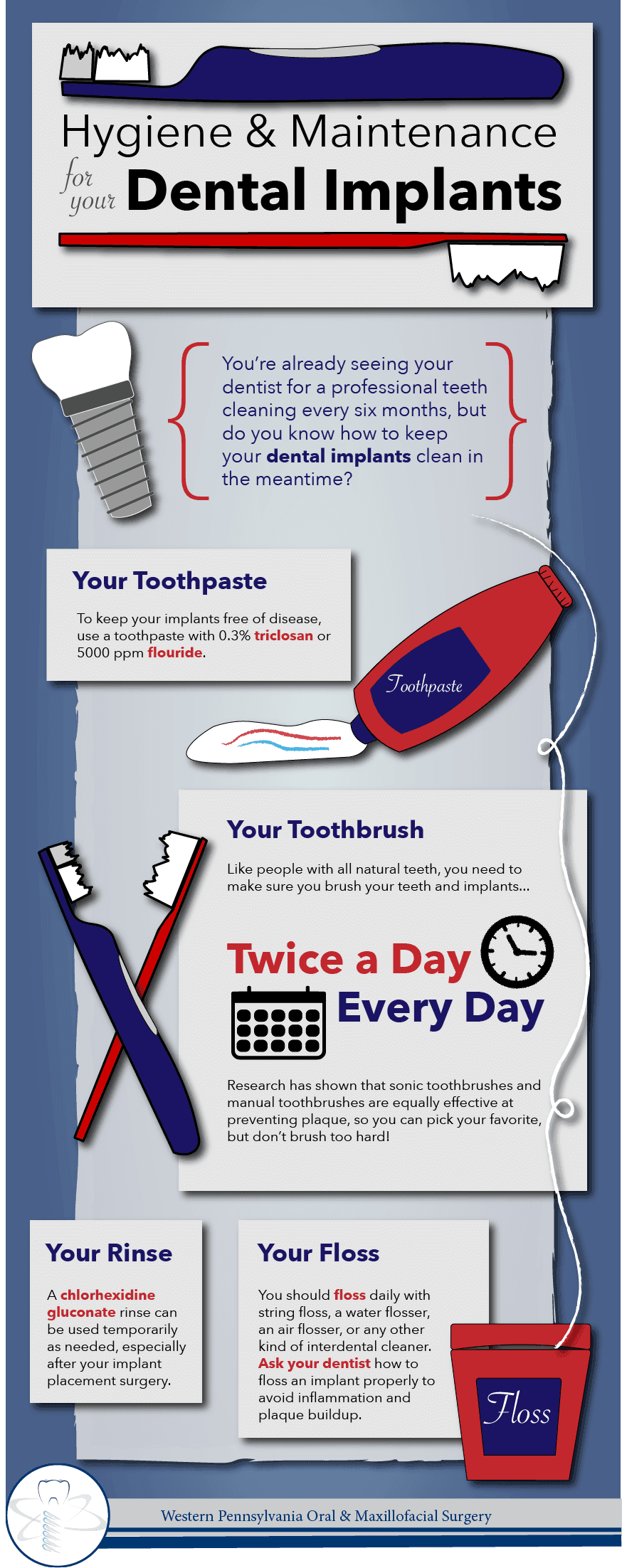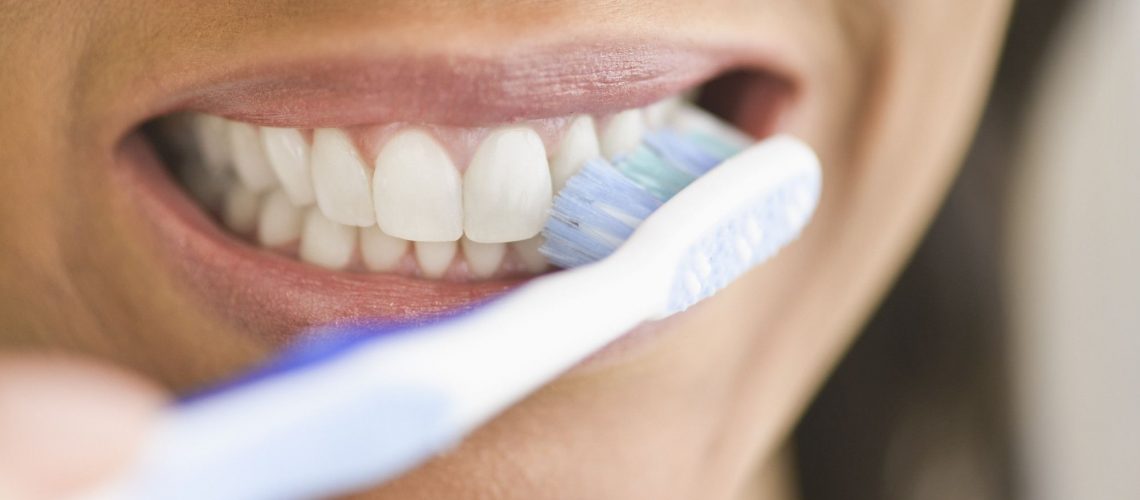Congratulations on your new dental implants! Whether you have a single crown or an All-on-4 restoration, your smile looks phenomenal and you want to keep it that way. So here’s the big question: How do you take care of your new smile, and is cleaning dental implants different from taking care of your other teeth?
There’s good news. Your dental implants are very similar to your natural teeth, so your overall hygiene routine will be pretty similar. The bad news? Your implants will be vulnerable to plaque accumulation and disease, especially right after your implant surgery. Here are some tips for the hygiene and maintenance of your dental implants or all-on-4 restoration.
 Feature Image Source
Feature Image Source
Right after Your Single Implant Surgery
On the night of your surgery, use your prescribed Peridex Oral Rinse before bed. Continue to use it the day after surgery, once after breakfast and once before bed. Be sure to rinse for at least 30 seconds, then spit it out. You should also rinse with warm salt water (teaspoon of salt in a cup of warm water), at least 4-5 times a day and especially after meals. Be gentle when brushing the surgical areas, but you will have no problems from brushing your teeth and healing abutments.When Your Implants Have Healed
After your implants have healed, continue visiting your general dentist for a professional teeth cleaning every six months. You should be brushing your teeth twice a day with triclosan fluoride toothpaste, just like you would with natural teeth. The biggest difference in your oral hygiene routine is related to flossing around your implant. Ask your dentist to demonstrate the proper flossing technique. You will want to thread your floss around the implant, at the base of the crown, and cross the floss in front, pulling back and forth in a shoe shining motion.What about All-on-4?
Your All-on-4 prosthetic teeth are as natural as possible, so you will still need to brush your new teeth like normal, with toothpaste and a medium to soft tooth brush. Flossing will be very different though, since your teeth are all connected and there is no space between the teeth to floss. Instead, you will need to use a floss threader and floss to get between the junction of the prosthesis and the gums. Ask your dentist to demonstrate this for you during your postoperative appointments. Your dentist will be properly trained to keep your teeth polished and looking great, and remove the prosthesis for cleaning. Feature Image Source
Feature Image Source 

